On April 20, Business School of Beijing Technology and Business University successfully held a forum for external practice mentors of the Master of Professional Accounting (MPAcc) program. The forum invited over 60 distinguished guests and representatives of external practice mentors, including Yang Shanhua, Chief Accountant of China National Pharmaceutical Group Corporation and President of China Pharmaceutical Accounting Society, Zhao Shousen, former Standing Committee member and Chief Accountant of China Coal Science and Engineering Group, Li Xinfu, Chairman of the Supervisory Board of Beijing Energy Financial Co., Ltd., Zhang Xinghai, General Manager of Wafangdian Bearing Group Co., Ltd., Chen Lin, Chief Operating Officer of Peach Technology, Song Guohua, Deputy Minister of Finance of China Metallurgical Group, Zhou Chongkui, Executive President of Tianjian Accounting Firm, and Wang Jiuli, Chairman of Beijing Huacai Accounting Co., Ltd. More than 20 teachers and student representatives also attended. The event was attended by Fu Shilun, Secretary of the Party Committee of the Business School, He Yurun, Dean of the Business School, Professors Xie Zhihua and Yang Youhong, Vice Deans Zhao Chuan and Xu Xiaofang, Zhang Weihua, Deputy Director of the Financial Planning Department of Beijing Technology and Business University, Zhang Hongliang, Director of the Case Research Center, and Zhang Jide, Director of the Education and Training Center of the Business School.

The forum focused on the theme of "Cultivating Compound Accounting Talents, Leading the Digital Financial Future," featuring keynote speeches, roundtable forums, and other interactive sharing sessions. Participants discussed innovative education models and enterprise-university training strategies for compound accounting talents under the background of digitalization, drawing on their practical experiences.
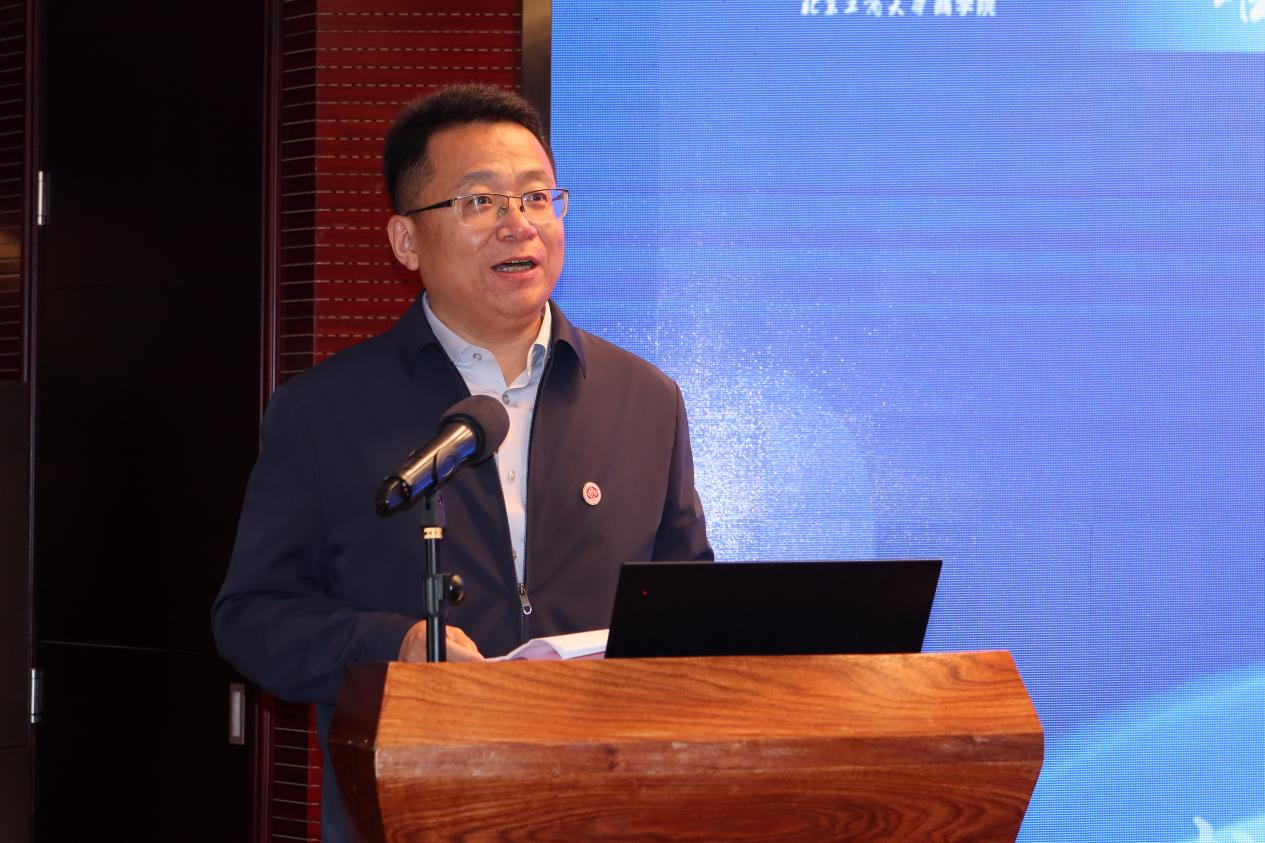
Fu Shilun, Secretary of the Party Committee of the Business School, expressed a warm welcome to the guests and mentors at the opening ceremony. He emphasized the need to respond to the national call to cultivate digital talents adapted to the needs of the new era, highlighting the key role of digital technology integration with the real economy and digital talents in promoting high-quality economic development. He hoped that the forum would serve as an opportunity to jointly promote the cultivation of high-quality accounting talents at Beijing Technology and Business University's Business School, contributing more wisdom and strength to serving the country and aiding the high-quality economic development of the capital.

He Yurun, Dean of the Business School, in her opening speech, noted that with the rapid development of economic globalization and the digital economy, the training of accounting professionals faces new opportunities and challenges. The school is committed to building a high-level research university, integrating resources, promoting the digital transformation of business disciplines, and cultivating compound and practical accounting talents to serve the economic and social development of the country. Dean He pointed out that the convening of this forum is not only a continuation of the school's historical tradition but also a forward-looking consideration for the training of accounting talents in the new era. The ideas exchanged among the experts will provide important references for the reform of MPAcc education at the Business School and promote the education of accounting postgraduates to a new level.

Yang Shanhua, Chief Accountant of China National Pharmaceutical Group Corporation and a special guest at the forum, spoke on the topic of "Career Development of Compound Accounting Talents." She pointed out that compound accounting talents need not only to master financial expertise but also to possess "five abilities": leadership, management, coordination, learning, and professional skills. She proposed a formula for the value contribution of accounting talents, emphasizing direct and indirect value creation and value creation in organizational activities. For financial personnel, the importance of platform value and position value should not be overlooked, and a good platform can greatly enhance personal value. At the end of her speech, Yang also encouraged accounting professionals to have a sense of political direction, to continue learning and improving their abilities, and to emphasize that while life value cannot be measured by accounting, accountants can achieve dual promotion of self-worth and social value through practical actions.
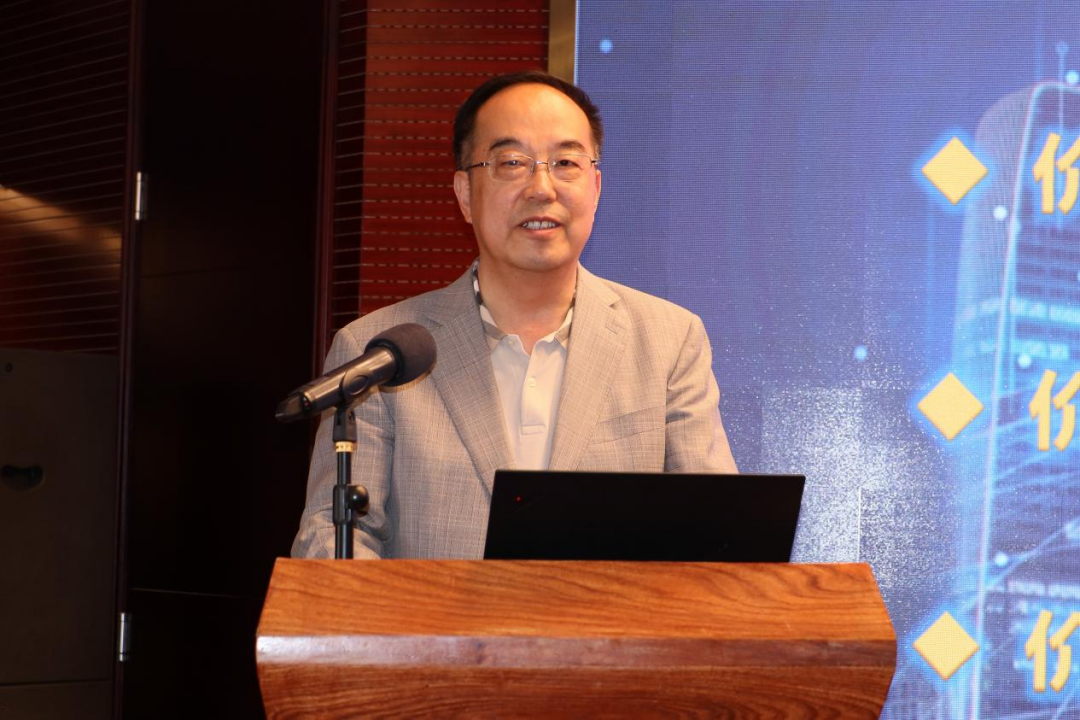
Zhao Shousen, former Chief Accountant of China Coal Science and Engineering Group, gave a special practice report on how China Coal Science and Engineering Group improves value creation capabilities. He shared three insights on corporate value creation and then elaborated in detail from eight aspects: corporate culture, technological innovation, comprehensive budgeting, "six standards," quality and efficiency improvement, people-oriented, responsibility, and fruitful results. He emphasized that value creation is a dynamic process of multi-industry integration, and a holistic concept and systemic thinking in corporate management are very important. Financial personnel should have this global perspective to ensure efficient corporate value creation. Finally, he encouraged students to read extensively, travel widely, and strengthen critical thinking and reflection skills.
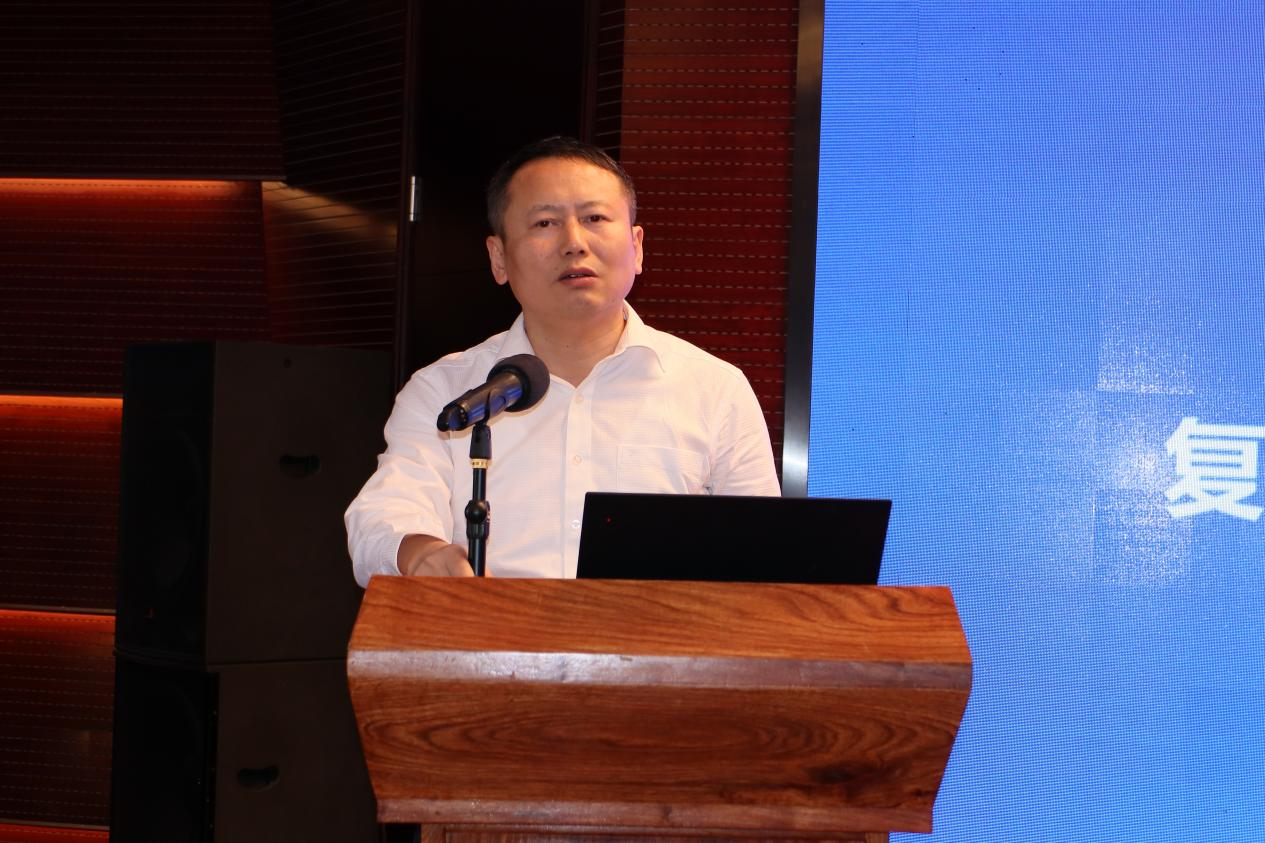
Li Xinfu, Chairman of the Supervisory Board of Beijing Energy Financial Co., Ltd., introduced how to cultivate compound talents through vivid examples. He pointed out that accountants need not only to be proficient in accounting but also to be knowledgeable in law, mathematics, statistics, and computer science, which can broaden the horizons of accountants and better promote financial management work. He shared his career development experience, noting that the accounting profession has a broad expansion space. He hopes that young people will cherish time and try to obtain professional qualifications such as certified public accountants, registered tax agents, and registered asset appraisers. This will be a very effective learning process, enhancing professional capabilities and credibility in the short term. However, in the long term, the reserve of interdisciplinary and compound knowledge, practical experience in enterprises, and contemplation of scientific research are all very important aspects. He also encouraged young people to focus on the most efficient use of their time, persist, and eventually achieve success.
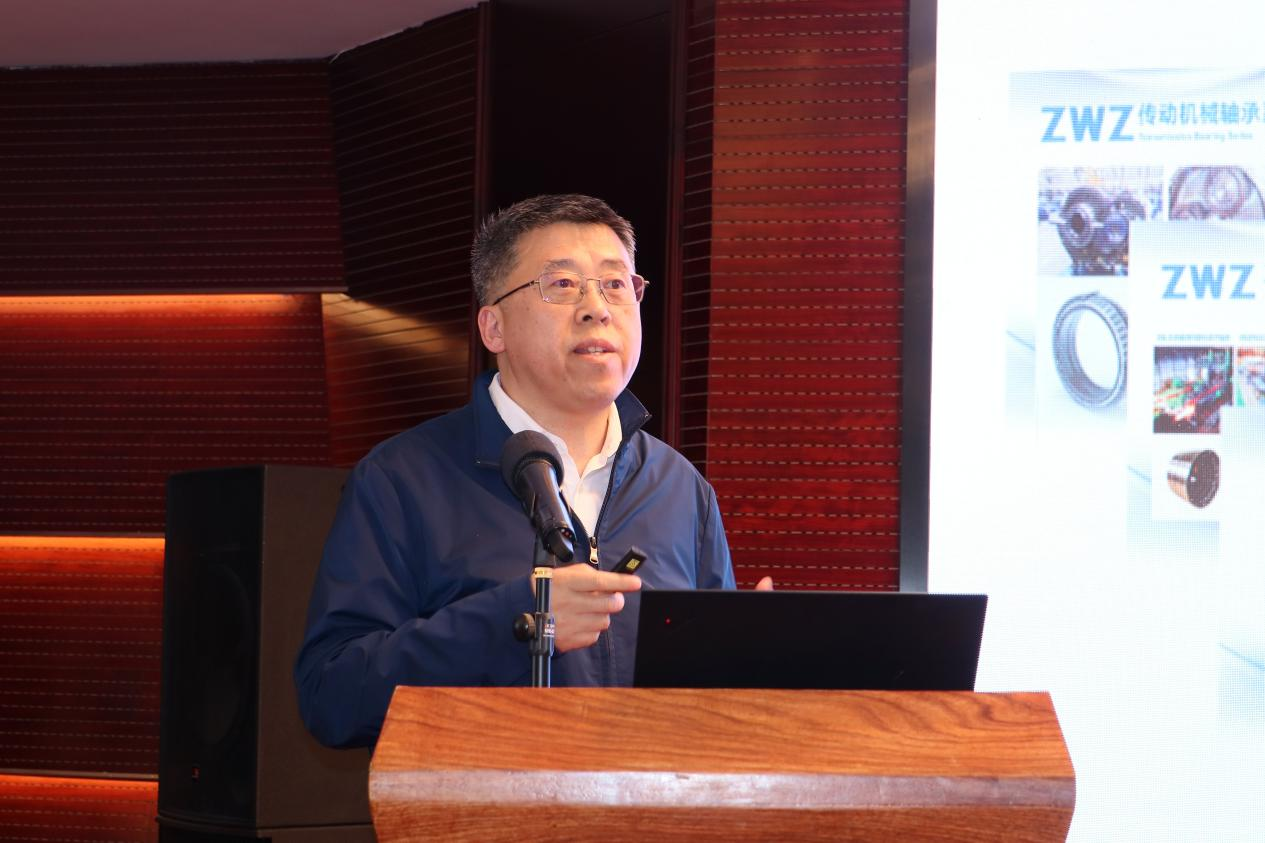
Zhang Xinghai, General Manager of Wafangdian Bearing Group Co., Ltd., spoke on the theme of "New Quality Productive Forces Promoting High-Quality Enterprise Development." Based on the review of the development of China's bearing industry, he shared the practices and experiences of Wafangdian Group in promoting enterprise development strategies with new quality productive forces. He pointed out that as an advanced form of productive forces, "new quality productive forces" are in line with the human development concept of the new era. Wafangdian Group actively introduces and practices "new concepts," "new methods," "new manufacturing," "new models," and "new mechanisms" in the process of corporate value creation, forming a unique adaptive organizational model of Wafangdian Group. At the same time, the group's personalized performance management system of "one factory, one policy" left a deep impression on the participants with its precision and flexibility. This customized management model fully considers the specific needs and environment of each factory, playing an important role in improving operational efficiency, enhancing organizational flexibility, and competitiveness.
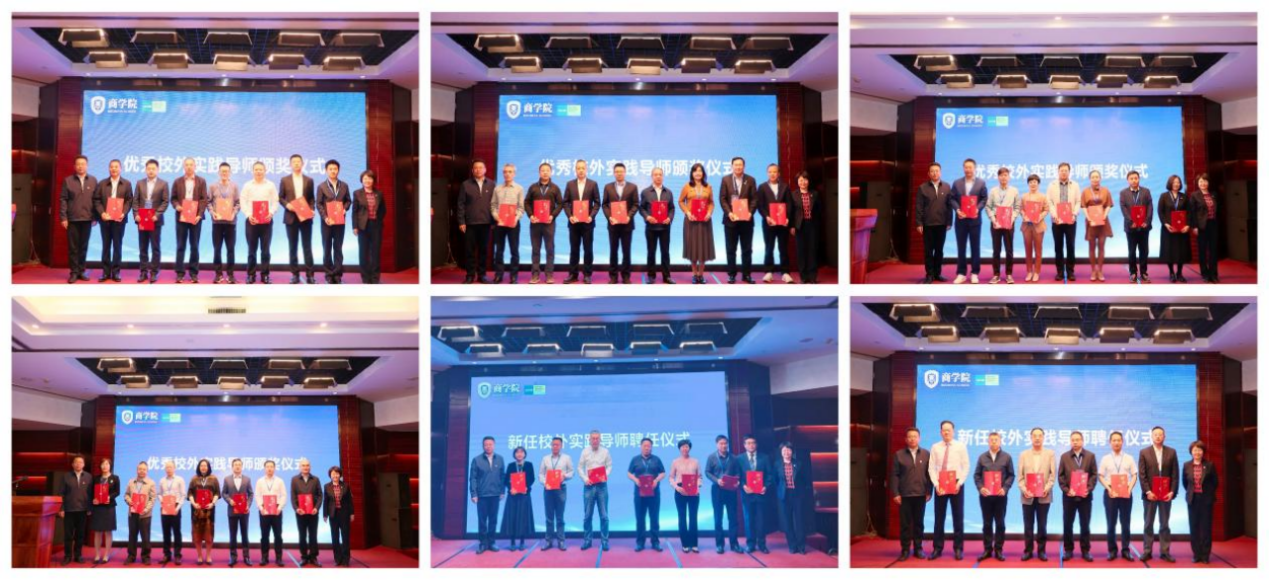
Fu Shilun, Secretary of the Party Committee of the Business School, and He Yurun, Dean of the Business School, presented certificates of honor and appointment letters to outstanding external practice mentors and newly appointed external practice mentors, respectively. They thanked the mentors for their support and assistance in the school's talent training work and expressed hope that under the new requirements and challenges of digital transformation, the mentors would provide corresponding guidance for the school's talent training work, further deepen industry-university-research cooperation, and cultivate compound accounting talents.
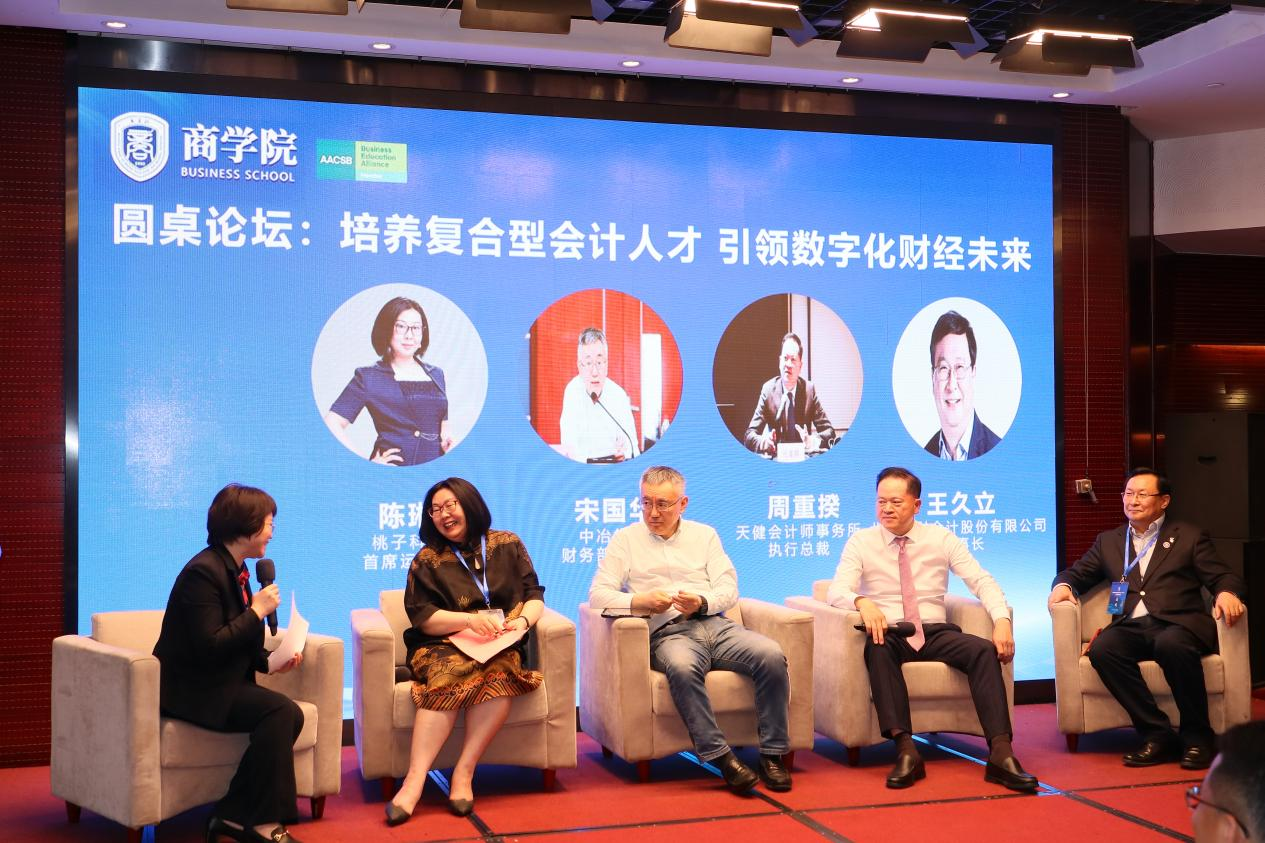
The second half of the forum entered the roundtable discussion session, chaired by Dean He Yurun, who interacted with four senior industry experts on the spot, further discussing practical issues such as what kind of accounting talents are needed by the industry and enterprises and how to cultivate outstanding compound talents.
Chen Lin, Chief Operating Officer of Peach Technology, pointed out that the demand for accounting talents has shifted from traditional paper accounting work to digital and interdisciplinary capabilities. She emphasized that universities should focus on soft skills, such as learning ability and communication skills, during the training process. These abilities, which cannot be easily obtained through short-term learning, are exactly what the current workplace needs the most. At the same time, she reminded everyone not to overemphasize professional barriers but to encourage students to have a broad knowledge base and solid foundation. She suggested that universities should adjust their curriculum flexibly, pay attention to the integration of interdisciplinary subjects, and adapt to changes in market demand. She also advocated that financial personnel should return to the core of the business, closely integrate with other fields such as the supply chain, and promote the substantive development of business-finance integration.
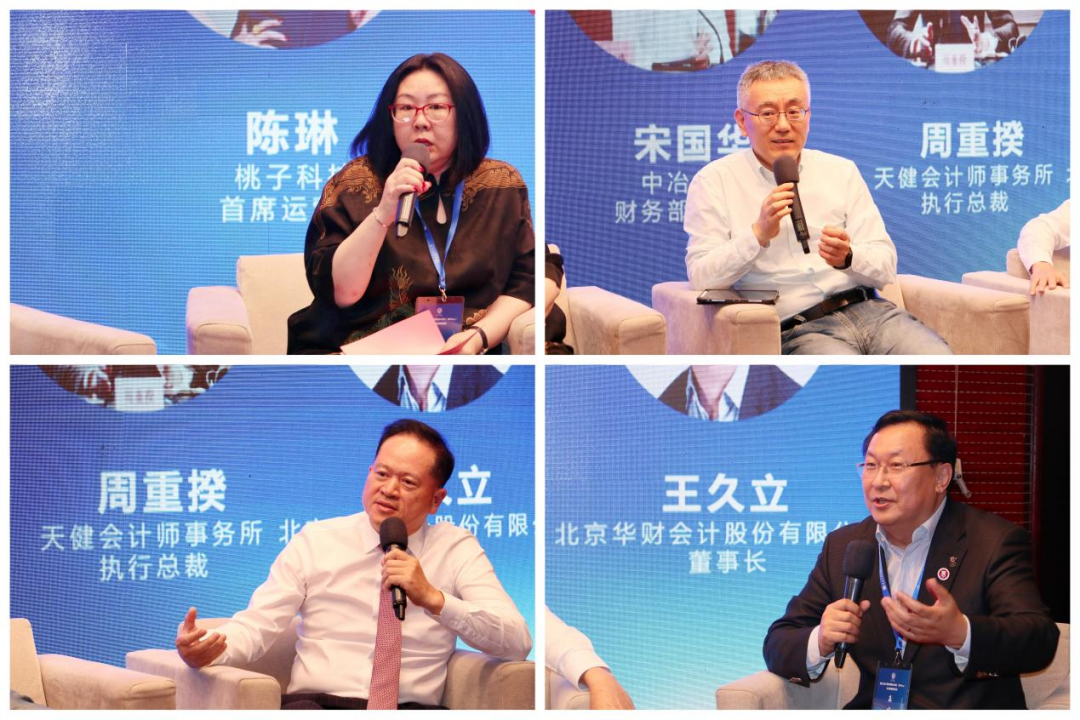
Song Guohua, Deputy Minister of Finance of China Metallurgical Group, emphasized basic education and the cultivation of compound talents in the forum, offering unique insights into the impact of digital transformation on the accounting industry. He pointed out that although digitalization and artificial intelligence technology are changing the way accounting work is done, the core theories and logical foundations of accounting remain crucial. Accounting is no longer just bookkeeping but has shifted to management accounting, involving more data analysis and decision support. He emphasized that although the demand for compound talents is increasing, a solid foundation in accounting theory is still key. The new era has put forward new requirements for high-level accounting management, and we should be good at cultivating management thinking and a global perspective, understanding the essence of accounting and the core of corporate operations. Minister Song encouraged students to learn philosophy and focus on the cultivation of a worldview, thereby better understanding the essence of things and laying a solid foundation for their future careers.
Zhou Chongkui, Executive President of Tianjian Accounting Firm, shared his views on how the firm cultivates a new generation of self-improving, self-disciplined, and forward-looking young talents. He emphasized that although the talent turnover in the firm is high, it bears an important responsibility for talent training. He proposed that in the tide of digital transformation, the accounting industry is facing a functional transformation from executors to strategic participants, and data processing and analysis capabilities are particularly important. The firm should begin to implement a digital transformation plan, enhance employees' digital skills through training, and focus on the cultivation of interdisciplinary compound talents to adapt to industry changes. He emphasized the importance of strategic awareness and innovation ability in talent development. He firmly believes that although technological progress may change the way of working, the core value of the accounting industry will not be replaced, and it is constantly iterating and evolving.
Wang Jiuli, Chairman of Beijing Huacai Accounting Co., Ltd., shared the growth path of Huacai Accounting Co., Ltd., emphasizing the need for the cultivation of compound accounting talents. He mentioned that the company provides rich internship opportunities for students from Beijing Technology and Business University every year to ensure they have practical skills and industry vision. He also emphasized the importance of integrity and compliance, which he considers the basic bottom line of the accounting industry. When discussing the cultivation of future accounting talents, he proposed that students should have solid professional skills and the ability to learn and innovate continuously to adapt to the rapidly developing corporate environment. Chairman Wang emphasized the importance of practical experience and hopes to provide more practical opportunities for students through school-enterprise cooperation and a broad team of mentors, helping them grow into professionals who can serve enterprises well and create greater value.
In conclusion, Secretary Fu Shilun of the Party Committee of the Business School made a closing summary. He pointed out that the sharing of the forum guests not only provided valuable experience within the industry but also had a profound impact on building a modern talent training system and promoting the digital transformation of the Business School. This year's government work report made specific arrangements for accelerating the development of new quality productive forces, and the development of the digital economy is unstoppable. The accounting industry is facing profound changes while also facing great development opportunities. He advocated that while enjoying the dividends of digitalization, it is important to keep pace with the times and development trends, focus on the cultivation of compound talents, and meet the school's requirements of "strengthening business disciplines, refining engineering disciplines, integrating business and engineering, and dual-wheel drive." Finally, Secretary Fu Shilun stated that the forum is not an end but a new starting point. He looks forward to further deepening exchanges between internal and external mentors and students, more cooperation in the future, and jointly contributing to the future development of the Business School and the construction of the double first-class disciplines of Beijing Technology and Business University.
The holding of this forum further promoted in-depth cooperation between schools and enterprises and provided new ideas and directions for cultivating accounting talents adapted to the digital economy era. The Business School will continue to be committed to innovating educational models and cultivating more high-quality compound talents for China's financial and economic fields.
